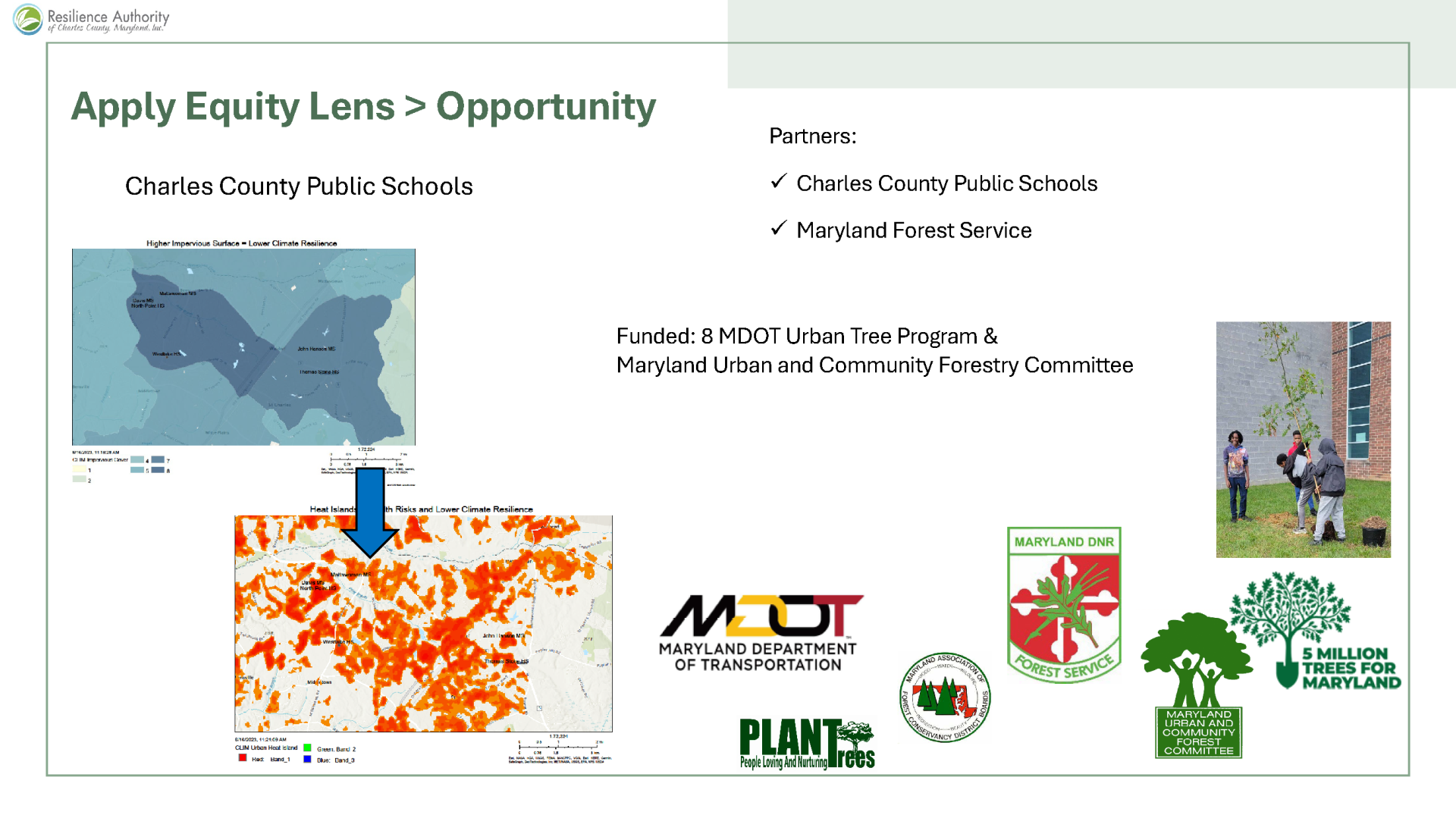Establishment of Urban Tree Canopies at Charles County Public Schools in Urban Heat Islands.
Increasing temperatures from climate change affect everyone, and communities in urban heat islands (areas characterized by more heat-absorbing buildings and pavements and fewer cool spaces with trees and greenery) are more likely to experience heat-related illnesses and mortality, with related negative effects including poor air quality and a higher air conditioning cost burden. Multiple Charles County public schools are in urban heat islands. Well planned native tree planting and long-term maintenance of those trees build climate resilience by reducing impervious surface, providing much needed cooling, improving air quality and health outcomes, while advancing carbon sequestration and stormwater management.

Charles County Public Schools are disproportionately affected by the urban heat island effect, so the Resilience Authority has partnered with the school system and Maryland Forest Service to reforest school campuses and establish native tree canopies coupled with environmental education.
In partnership with Charles County Board of Education environmental educators and the Maryland Forest Service, the Resilience Authority was awarded funding through the Maryland Department of Transportation (MDOT) Urban Tree Program and the Maryland Urban and Community Forest Committee (MUCFC) to plant 115 well-sized native and diverse tree species at five different Waldorf area schools in urban heat islands.
The Resilience Authority, in its continued partnership with Charles County Public Schools, the Maryland Forest Service, and the Student Conservation Association (SCA), plan to continue planting and maintaining urban tree canopies and pocket forests at other schools and neighborhoods in identified urban heat islands.
